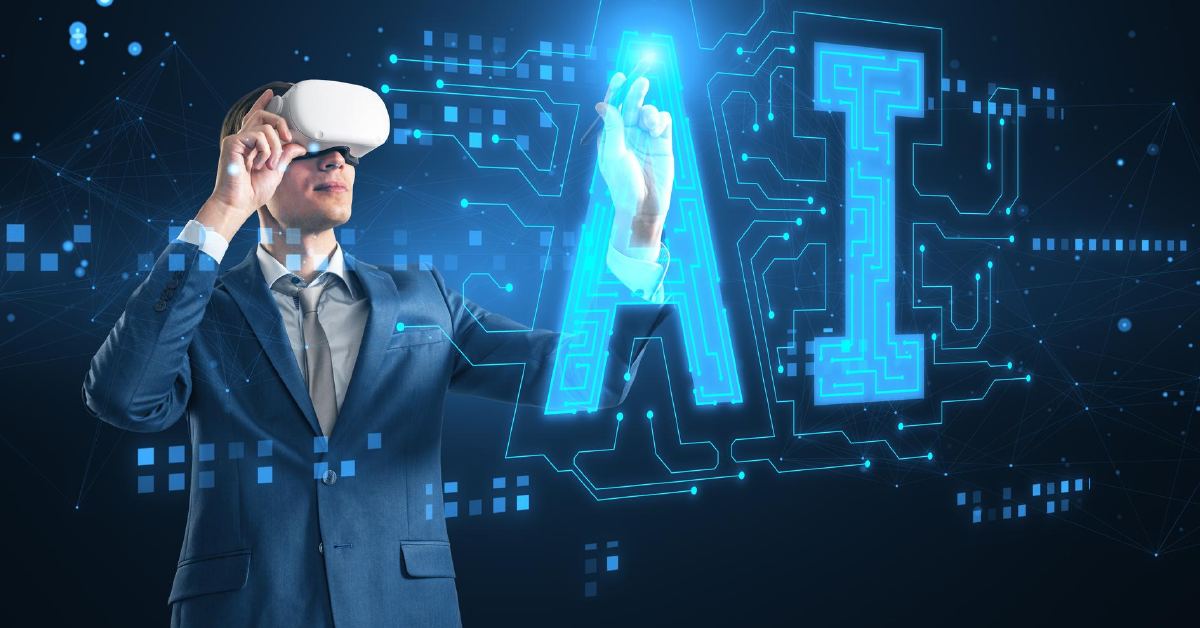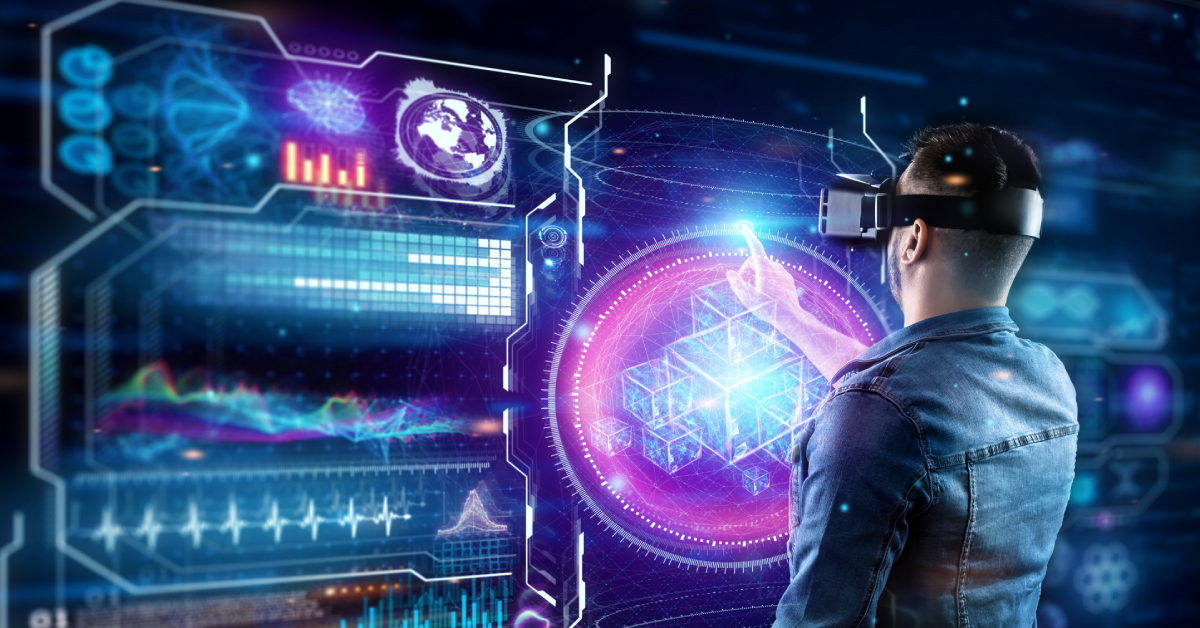Future of AI Software: Developing Intelligent Solutions

5 min read
Businesses, tech startups, and software product companies can obtain cutting-edge AI software development that enables comprehensive operation automation. Artificial Intelligence (AI) has rapidly evolving over the past few decades, and its impact on various industries has been nothing short of transformative. From healthcare and finance to transportation and entertainment, AI has found applications in almost every sector. As we look to the future, the role of AI software development in shaping our world is only set to grow. In this blog post, we will explore the future of AI software and how it will continue to revolutionize the way we live and work.
AI Software Expansion in the Future Development
The development of the future of AI software expansion is change to reshape industries and improve everyday life. As technology advances, AI software will become increasingly sophisticated, enabling more precise and context-aware solutions. It will play a pivotal role in healthcare, finance, transportation, and countless other domains, offering predictive insights, automating tasks, and enhancing decision-making processes. With continued research and innovation, AI software will evolve to be more ethical, interpretable, and scalable, ushering in an era of unprecedented possibilities and transformative applications.
AI Software Development: Advancing Personalization in Business
AI software is already helping businesses personalize their interactions with customers, and this trend is expected to become even more prevalent in the future. The vast amounts of data analyzed by AI algorithms to understand individual preferences and behavior, allowing companies to offer tailored products, services, and content.
The Role of AI: Developing Software
A user-centric product design is mapped out with the aid of AI as well. They can determine how a software product’s target audience interacts with it thanks to AI Technology. The product’s user interface (UI) design is then updated to reflect these user tendencies. The user engagement process is changing as a result of big data and AI models. Let’s examine some of the functions that AI Software Development.
Efficiency and automation
Automating repetitive and boring software development chores like code generation, testing, and debugging is possible using AI. This enhances overall efficiency, lowers human labor, and streamlines the development process.
Intelligent Support
Work with companies that are interested in sponsoring your fantasy sports website. They can donate visual assets, data, content, or other components that improve user experience and help in generating income in exchange for their sponsorship.
Data Analysis and Conclusions
The software development process generates enormous volumes of data, which AI can analyze and gain useful insights from. It can spot patterns, trends, and anomalies to guide developers’ decisions, enhance functionality, and enhance user experiences.
NLP: Natural Language Processing
AI systems can comprehend and process human language thanks to NLP. With AI’s ability to understand and reply to natural language questions, tasks like requirement collecting, documentation creation, and customer support can benefit from improved communication and teamwork.
Forecasting Analytics
AI algorithms can employ past data analysis to forecast user behavior, identify potential dangers, and estimate development timetables, among other things. Better planning, resource allocation, and decision-making are made possible because to this foresight.
Enhancing the user experience
To personalize and improve the user experience, AI may analyze user behavior, preferences, and feedback. It can suggest pertinent features, improve user interfaces, and offer individualized recommendations, making for more user-friendly and captivating products.
Constant Development
AI systems are able to continuously improve themselves through iterative improvements and adaptive development procedures. The ability to change and adapt to changing user needs and market trends is made possible by this.
What is the Future Development of AI Software in Numerous Sectors?
The process of developing computer programs and algorithms that can carry out operations that would typically need human intelligence. Such as comprehending natural language, spotting patterns, making judgement calls, and learning from data, is referred to as AI software development. Artificial intelligence has applications in many different fields. As follows to advance their development, certain significant industries are turning to AI software. Here are some instances of AI software development in many sectors.
Healthcare Advancements
The healthcare industry stands to benefit immensely from advancements in AI software. From disease diagnosis and treatment recommendations to drug discovery and patient management, AI is poised to revolutionize healthcare in numerous ways.
Ethical and Regulatory Challenges
With the rapid development of AI software, there come ethical and regulatory challenges. The future of AI will undoubtedly see a heightened focus on addressing these issues to ensure the responsible and ethical use of AI.
Privacy concerns related to the collection and use of personal data by AI systems will be a significant challenge. Governments and organizations will need to implement robust data protection and privacy regulations to safeguard individuals’ rights.
Collaboration between Humans and AI
Contrary to the fear of AI taking over jobs, the future of AI software will likely see an increase in collaboration between humans and AI. AI systems are excellent at handling repetitive tasks and analyzing vast datasets, but they lack human qualities like creativity, empathy, and common sense.
AI in Education
The education sector is ready for a significant transformation through the integration of AI software. Personalized learning experiences, intelligent tutoring systems, and data-driven insights are just a few examples of how AI can enhance education.
Addressing Environmental Challenges
AI software can also play a significant role in addressing environmental challenges. From optimizing energy consumption in buildings to predicting natural disasters and managing resources more efficiently, AI has the potential to contribute to a more sustainable future.
Manufacturing
Quality Control: AI can inspect and detect defects in manufacturing processes.
Predictive Maintenance: AI predicts when equipment or machinery is likely to fail, enabling preventive maintenance.
Production Optimization: AI optimizes production schedules and resource allocation.
Automotive
Autonomous Vehicles: AI powers self-driving cars by processing sensor data and making real-time driving decisions.
Driver Assistance: AI assists drivers with features like adaptive cruise control and lane-keeping assistance.
Supply Chain Management: The uses of AI to optimize the automotive supply chain.
How AI Develops With Intelligent Solutions
Developing AI with intelligent solutions involves a structured approach to designing and implementing artificial intelligence systems that can solve specific problems or improve processes. Here are the key steps to develop AI solutions with intelligence.
Define the Problem
- Start by clearly defining the problem you want to solve or the goal you want to achieve with AI. Understand the problem domain, its context, and its significance.
Data Collection and Preparation
- Gather and clean the data that will be used to train and test your AI model. High-quality, relevant data is crucial for building effective AI software solutions.
Choose the Right AI Approach
- Select the appropriate AI solutions or algorithms for your problem. Common approaches include machine learning, deep learning, natural language processing (NLP), computer vision, and reinforcement learning.
Model Development
- Build and train your AI model using the collected data. This involves selecting the architecture, hyper parameters, and optimizing the model’s performance.
Testing and Validation
- Evaluate your AI model’s performance using validation data. Use metrics relevant to your problem, such as accuracy, precision, recall, F1-score, or others, to assess its effectiveness.
Iteration and Optimization
- Based on the testing results, fine-tune your model and make necessary adjustments. This may involve modifying the architecture, data preprocessing, or hyper parameter tuning.
Deployment
- Prepare your AI model for deployment in a real-world environment. This includes considerations for scalability, reliability, and security.
Monitoring and Maintenance
- Continuously monitor the AI solution in production to ensure it performs as expected. Implement mechanisms for automatic retraining and updating the model as new data becomes available.
Conclusion
The future of AI software development is bright and filled with possibilities. As AI continues to advance, it will bring about increased automation, personalized experiences, and revolutionary changes in various industries, from healthcare and education to environmental protection. However, it will also pose challenges related to ethics, privacy, and regulation that will require careful consideration and action. Get more information about python web development services.
Published: September 19th, 2023





